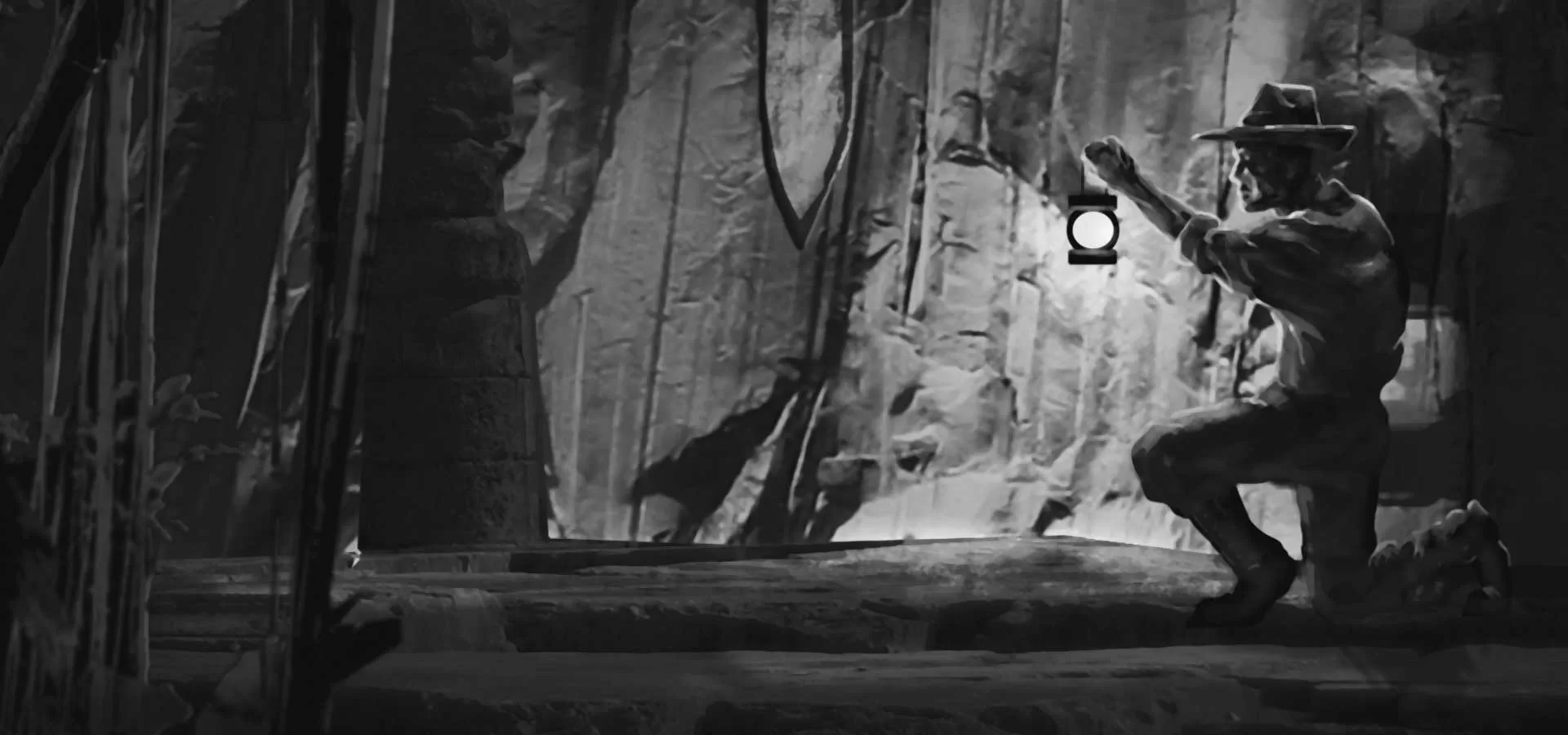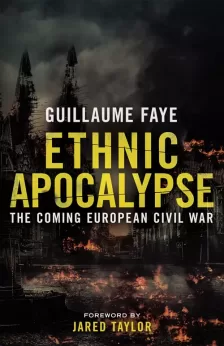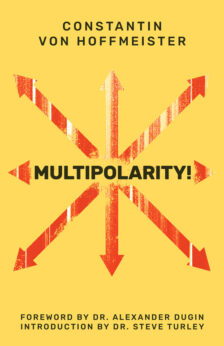Gutta cavat lapidem.
— Ovid, Epistolae ex Ponto, Book 4, X, 5
In an era marked by the unprecedented proliferation of online journals, blogs, magazines, etc. etc., it well might be demanded what purpose yet another could possibly serve, and if the founding of a new journal shall not contribute to that unhappy dispersion of thought which characterizes the ‘digital age’. This question, in light of its important implications, deserves a frank answer from the start. What follows is a statement of the purpose and the vision which actuates Arktos Journal, and of the spirit in which it is launched.
There is a temptation in troubled times such ours to be swept up, swept away, carried off down the torrent of happening and happenstance, made the unwitting galley slaves of some ship of history. Supposing that we are living in a day of crisis – and who among us could doubt it? – the critical nature of our time demands of us immediate action. This in turn exhorts us, it would seem, to truncate reflection, analysis and contemplation, and to hurl ourselves blindly and fanatically into the fray.
Arktos Journal firmly resists that temptation, holding by what is surely one of the fundamental tenets of what one might call the Deep Right: namely, that the abiding is more powerful than the ephemeral, even when the calm, confident voice of the former seems drowned out by the bellowing of the politicians’ megaphones, the ceaseless rabble of ‘current events’, and the simian squabbling of the pundits and the press. Arktos Journal, as Arktos Media itself, provides a sphere within which the voice of things enduring might be heard, for we are confident of nothing more than the fact that, notwithstanding all appearances to the contrary, real and effective change, whether it be social, personal, political or intellectual, is the child of intellectual and spiritual clarity alone – even, and especially, in moments of crisis.
To be sure, we are not alone in thinking so. In the wider community of the Deep Right, there are a great many very fine journals, blogs, writers, &co. to be found in a thousand nooks and crannies in the endless inarticulate landscape of the internet. Some of these stand out and carry sizeable audiences. All of these projects, great and small, are to be commended, for they form a network or a web capable of touching a multiplicity of individuals in a vast array of diverse contexts.
This brings us to the second reason behind the launching of the Arktos Journal: the desire to establish, insofar as in us lies, a meeting place for these endeavours, and a hub for some of the deepest thinkers and the finest writing in the tradition and orientation of the Deep Right today. Arktos Media is specially positioned for such work as this, given its long cultivation of connections with the major figures of the European New Right, the American Alt Right, the Russian-originated Fourth Political Theory, and other groundbreaking thinkers and schools, both new and long-established.
At this point, a special word is wanted regarding the notion of the Deep Right itself, which forms the guiding light of Arktos Journal. The Deep Right must not be conflated with the workaday political ‘right’ – that ‘right’ which forms one half of the petty parliamentary wrangling of our day – that ‘right’ which agrees with the ‘left’ on practically every essential principle, and which nonetheless somehow feebly goes about ‘opposing the left’, inevitably in vain, because it has ceded every essential point from the start. The Deep Right represents rather a worldview, a Weltanschauung, an overarching vision of human things, which stands far aloof from the conventional divisions that inform our politics today. It takes its bearings rigorously by a number of fundamental principles; and from these principles a multiplicity of specific views might have their birth – views which could be adversarial, even partisan, even agonistic and antagonistic with respect to one another. In the spirit of the Deep Right itself, and the warrior and aristocratic traditions to which it must inevitably make reference, we do not shy from this intellectual contest, but welcome and encourage it, as the forcing bed for keener, brighter and stronger ideas.
Though it would be presumptuous to attempt a definition of the Deep Right here – not least of all because arriving at an understanding of the Deep Right in a certain sense could be seen as the greater project of this journal itself – it can certainly be said that, in the context of the aforementioned crisis of our times, one of the central insights of the Deep Right is that Europe, and indeed the wider West to which Europe remains the Fatherland of Fatherlands, is in a state of ominous and increasingly calamitous decay. The West is in need therefore of a profound revitalization. All efforts which are genuinely and effectively taken toward that revitalization are to be nourished and lauded, no matter their source, no matter to what sphere they contribute – be it the political, the geopolitical, or the metapolitical, the physiological or psychological, the scientific or ecological, the philosophical or spiritual, the artistic or cultural. And, in full awareness that the Deep Right necessarily forces a reconnection of the past with the present, this project includes the historical as well: the historical understood, not as a ‘value-free’ scratching about amidst the dust of ruins, but rather as it was originally understood, as ἱστορία, a vital and critical inquiry, a quest for the eternally living temple, the evergreen perennial Tradition. Arktos Journal provides a forum to all these efforts.
Arktos Journal is thus not ‘neutral’, in the sense of foregoing all specific intellectual or moral commitments — the which is indeed impossible for any journal, insofar as every journal must sift its material through a discriminatory sieve, one which necessarily presupposes definite standards and interests. But Arktos Journal is emphatically impartial, in the sense that it cleaves to principles rather than ideologies, and adamantly refuses to become the servant, spokesperson or advocate of this or that closed, sectarian or tendentious viewpoint, but rather maintains above all a sense of height and higher perspective from which these specific viewpoints might be evaluated and ordered.
To clarify the position of our journal, we can finally do no better than to close by citing the mission statement of Arktos itself, with which this journal most implicitly accords:
Arktos does not seek to propagate any specific ideology, system of beliefs or viewpoint, nor do we seek consistency. Rather, we want to provide a voice for individuals and viewpoints who are often overlooked by the mainstream, but who offer original and challenging alternatives to our prevailing culture that cannot be found elsewhere. We view ourselves as offering fodder for the minds of those who envision a world that is different from the one we inhabit today, but are uncertain of exactly what shape it will take. We leave it to the Fates to decide which of these seeds will bear fruit in the future.








I just discovered Arktos Journal (despite owning a few Arktos books). This looks like a promising endeavor, complimenting the work at places like Counter-Currents and The Occidental Observer. I shall start reading this space regularly.
ΑΓΑΘΗ ΤΥΧΗ (Good Luck)!
I look forward to this launching.